Best Sugar Substitute for Coffee. Coffee lovers who crave a touch of sweetness in their morning brew often turn to sugar to satisfy their taste buds. However, with the increasing concerns about the adverse effects of excessive sugar consumption on health, many are searching for alternative options.
Whether you’re looking to reduce calories, regulate blood sugar levels, or explore new flavors, finding the best sugar substitute for coffee can be a game-changer.
From natural sweeteners like honey and maple syrup to zero-calorie alternatives such as stevia and monk fruit extract, this article will delve into the world of sweeteners that perfectly complement your daily cup of joe.
What is sugar?

Sugar is a natural carbohydrate found in various foods and beverages. It is commonly used as a sweetener because it enhances flavors. However, consuming excessive amounts of sugar can be detrimental to our health. While some people may view sugar as the enemy, it is essential to understand that not all types of sugar are created equal.
Two primary categories of sugar exist: naturally present sugars and sugars that have been added. Naturally, like those discovered in fruits and dairy items, present sugars come with supplementary nutrients such as fiber and calcium.
Conversely, added sugars are frequently found in processed foods and beverages with minimal nutritional benefits. If consumed excessively, these added sugars can cause detrimental effects on our bodies, including weight gain, tooth decay, and an elevated likelihood of chronic diseases such as obesity and type 2 diabetes.
Understanding the different forms of sugar we consume can help us make better choices regarding our diet. Instead of altogether avoiding all sources of sugar, focus on reducing your intake of added sugars while enjoying the natural sweetness that comes from whole foods. Reading food labels can also help identify hidden sources of added sugars in products you might not expect.
What are Zero-calorie coffee sweeteners?
Zero-calorie coffee sweeteners are innovative products designed to provide sweetness to your coffee without adding calories. These sweeteners are crafted to mimic the taste of sugar while offering a guilt-free option for those looking to reduce their calorie intake or manage their sugar consumption. They come in various forms, such as liquid drops, powders, or granules, and are typically made using artificial sweeteners or natural sugar substitutes like stevia, erythritol, or monk fruit extract.
These zero-calorie coffee sweeteners have gained popularity among health-conscious individuals and those following specific dietary restrictions. Adding sweetness without contributing to your daily calorie count allows you to enjoy the full flavor of your coffee while maintaining control over your overall calorie intake.
Additionally, they are often diabetic-friendly alternatives, as they don’t cause significant spikes in blood sugar levels. With a variety of options available on the market, coffee lovers can choose the sweetener that best suits their taste preferences and health goals, making it easier to savor their coffee moments without compromising on flavor or wellness.
Best Zero-calories Sugar Substitute
Stevia
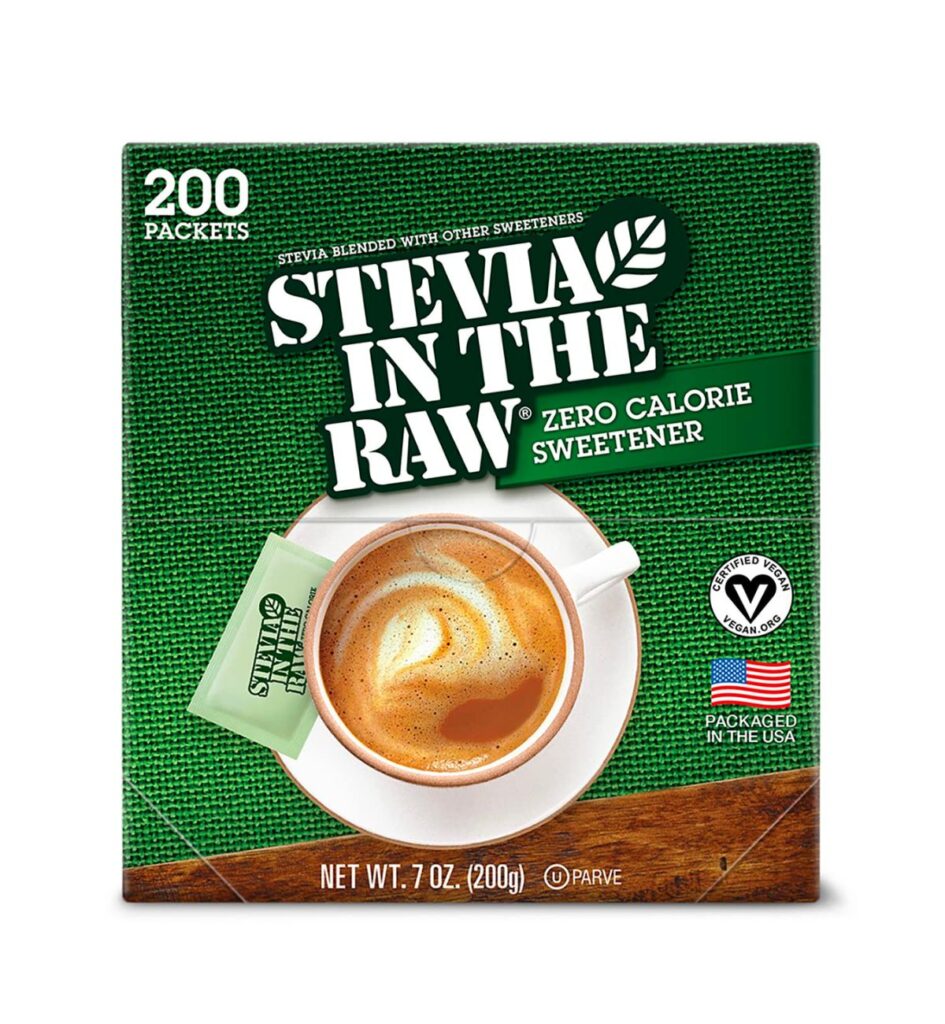
Stevia, this excellent zero-calorie sweetener, comes from the leaves of the stevia plant. It’s like nature’s gift to those looking for a sweet fix without guilt. Stevia’s sweetness comes from these natural compounds called steviol glycosides, which are super adorable but don’t bring any calories to the party. It’s been used for ages by indigenous communities to sweeten their drinks, and now it’s found its way into our coffee cups.
“Stevia In The Raw” is a plant-based sugar substitute that brings a burst of sweetness without the calorie load. It’s like a guilt-free flavor enhancer that’s free from erythritol. Derived from the stevia plant’s leaves, it’s all about those natural steviol glycosides responsible for the sweetness. The best part? It’s a zero-calorie option that won’t mess with your sugar levels. So, if you’re all about that sweetness minus the guilt, “Stevia In The Raw” could be your go-to sugar-free sweetener.
Monk Fruit Extract
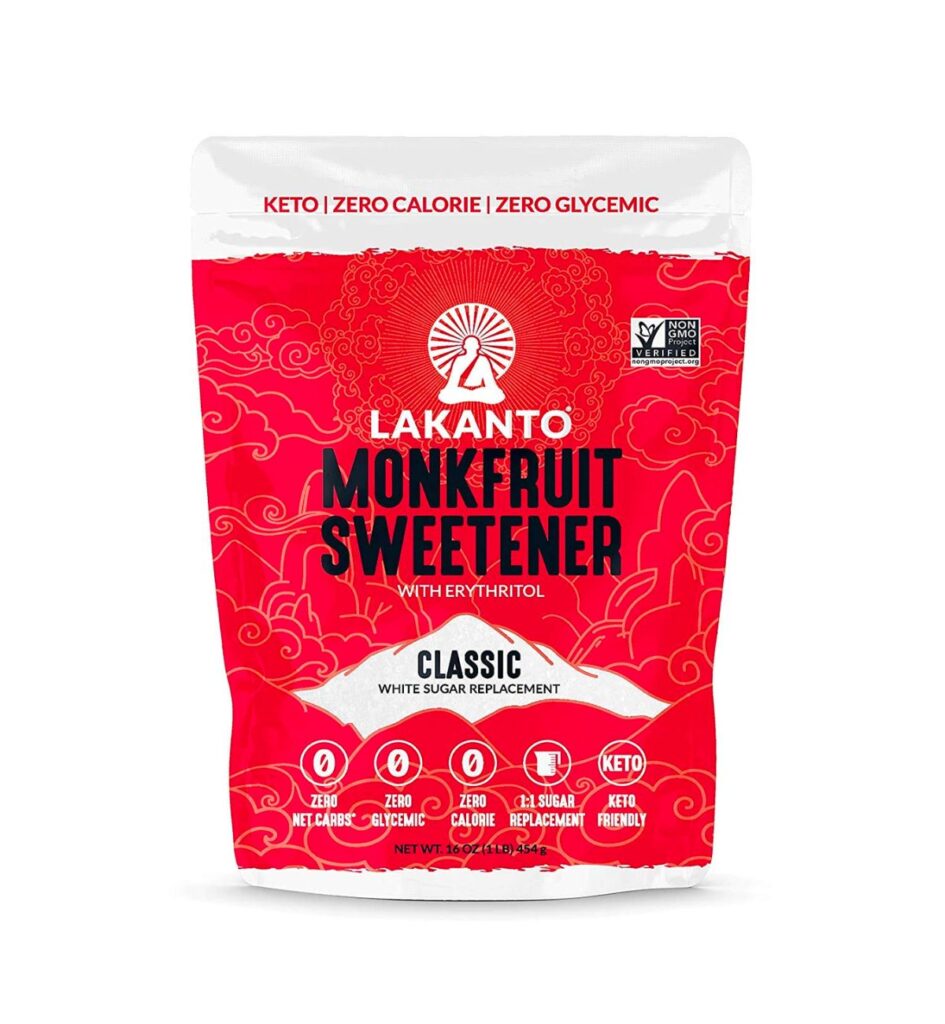
Monk fruit extract, this excellent zero-calorie sweetener, ‘s becoming quite the sensation. It’s made from the monk fruit, also known as Luo Han Guo, a small green fruit in Southeast Asia. The sweetness magic comes from natural compounds called mogrosides in the fruit’s flesh. These guys are super sweet but won’t add a calorie to your life.
The monk fruit extract is like a sweet secret weapon for those looking to cut down on sugar without sacrificing flavor. It’s been used in traditional medicine for ages and is now stepping into the spotlight as a sugar substitute. Plus, it doesn’t typically mess with blood sugar levels, making it an excellent choice for folks watching their sugar intake.
“Lakanto Classic Monk Fruit Sweetener with Erythritol” is a white sugar substitute that combines the natural sweetness of monk fruit extract with erythritol, sugar alcohol. This blend offers a similar taste and texture to white sugar but without calories. The monk fruit extract provides sweetness, while erythritol adds bulk and helps to balance the sweetness. It’s a versatile option for those seeking a low-calorie alternative to sugar in their drinks and recipes.
What are Natural coffee sweeteners?
Natural coffee sweeteners are a delightful way to add a touch of sweetness to your coffee without relying on artificial additives or refined sugars. Derived from sources like honey, maple syrup, and coconut sugar, these sweeteners bring your brew a genuine and authentic taste. They maintain their innate nutritional properties as they are minimally processed, offering a more wholesome option for those who appreciate the goodness of nature.
Embracing natural coffee sweeteners can be a journey of discovering diverse flavors. Each sweetener carries its unique taste, be it the floral hints of honey or the warm, earthy tones of maple syrup. Beyond the pleasing flavors, these sweeteners often bring along vitamins, minerals, and antioxidants that can contribute to your overall health.
While they’re a fantastic alternative, it’s important to remember that they do add calories and sugars to your coffee. Moderation is vital to savoring the delectable sweetness while balancing your coffee experience.
Best Natural Sugar Substitute
ERYTHRITOL
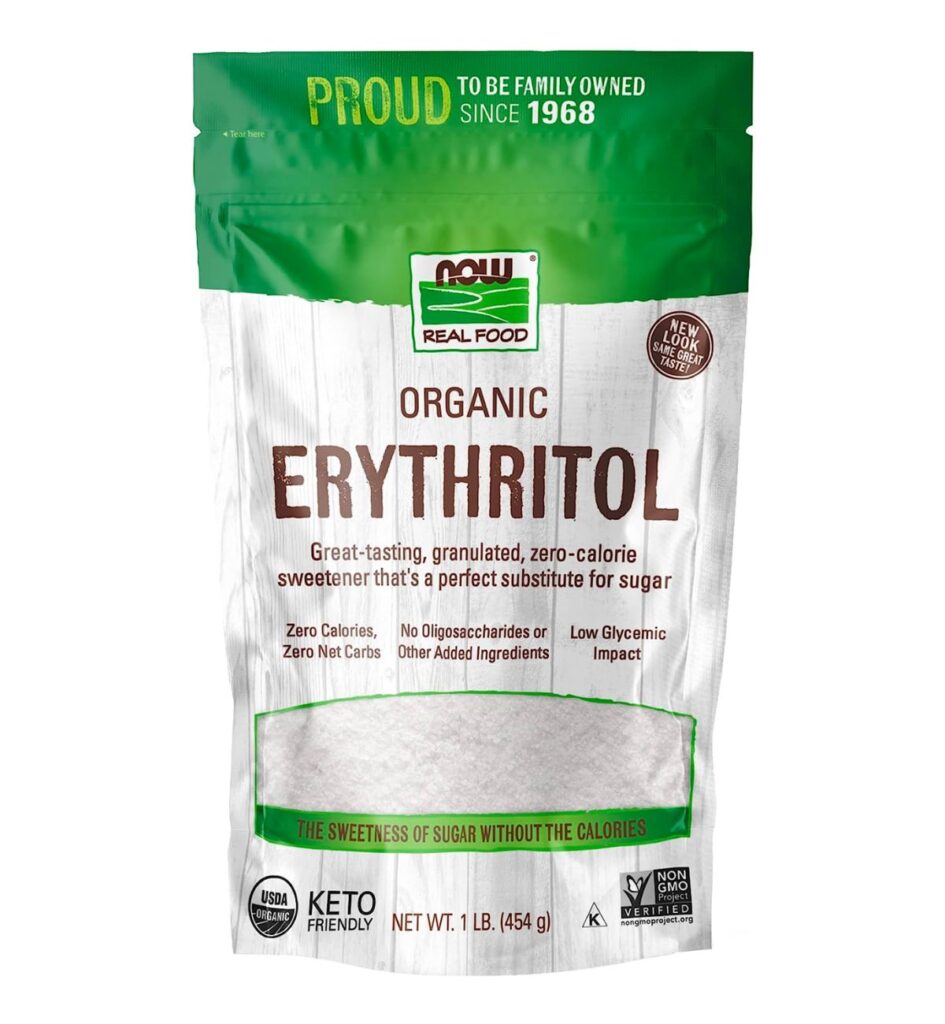
Erythritol is a type of sugar alcohol that undergoes fermentation using glucose obtained from wheat or corn sources. Although its sweetness level is approximately 70% of regular sugar, its calorie content is significantly lower at just 6%. Consequently, this makes erythritol an excellent alternative for individuals seeking to reduce their overall calorie intake.
Moreover, its consumption does not result in abrupt spikes in blood glucose levels, making it a safe choice for people with diabetes. Furthermore, extensive studies have confirmed the safety of erythritol consumption in both humans and animals alike. Additionally, erythritol boasts more accessible digestibility properties compared to other types of sugar alcohols available in the market.
Honey
Honey is an excellent alternative for those seeking a natural way to sweeten their coffee. Its distinct flavor is well-known among individuals who prefer sugary treats and is commonly found on breakfast tables worldwide. The consumption of honey brings numerous health benefits, including the ability to lower blood pressure and combat infections, thanks to its antibacterial phenolic acids and flavonoid content.
This organic sweetener perfectly complements a cup of coffee; however, it is crucial not to overindulge due to its higher caloric and carbohydrate composition than refined sugar options. In simpler terms, although honey possesses a low glycemic index, it can still cause a sudden rise in blood glucose levels when consumed excessively.
Monk Fruit
The luo han guo fruit, commonly called the monk fruit, is the source of monk fruit sweeteners. This small fruit thrives in southern China, and its extracted juice contains no calories while being an astonishing 200 times sweeter than sugar.
These sweeteners do not promote tooth decay and are also deemed safe for individuals with diabetes. Furthermore, they are acknowledged for their potential anti-inflammatory properties.
Coconut Sugar
The versatile coconut can be enjoyed in various ways, whether sipping on its refreshing juice or utilizing its oil for culinary purposes. One can anticipate a subtle hint of coconut flavor when used as a natural sweetener. While some view this as an added benefit, others may have different enthusiasm.
Notably, coconut sugar is unrefined, allowing it to preserve its essential minerals and vitamins. Additionally, it possesses a low glycemic index and contains fructose in equivalent amounts to regular sugar.
Maple Syrup
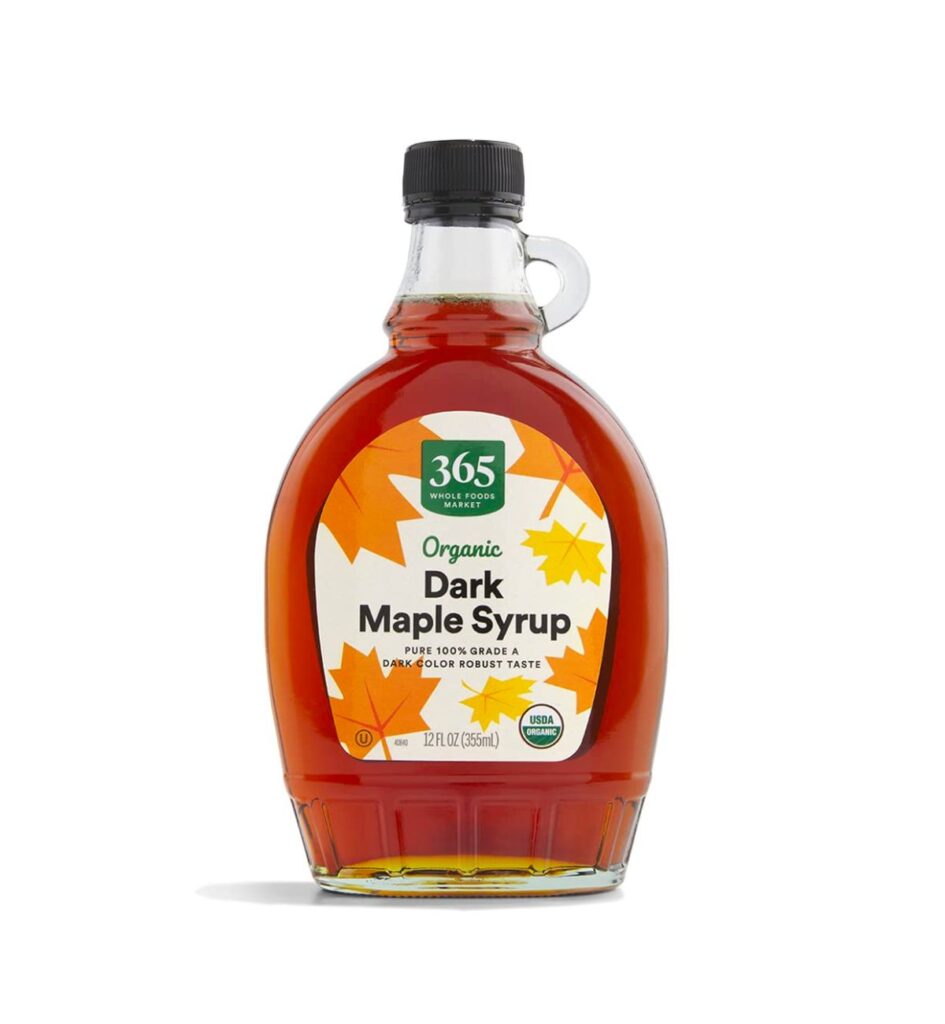
Maple syrup, a natural sweetener from nature, adds sweetness to your coffee and enhances your well-being. Studies have revealed that maple syrup possesses the same beneficial antioxidant compounds as berries.
Opting for all-natural syrup rather than artificial alternatives, which lack these advantages, is crucial. Moreover, maple syrup contains calories and can lead to weight gain.
Dates Syrup
Date syrup offers a wholesome and nutritious way to sweeten your meals. Derived from dates, this natural sweetener is packed with fiber and minerals, making it a healthier substitute for traditional sugar.
Not only does it provide a rich caramel taste that complements coffee perfectly, but it also contains antioxidants and anti-inflammatory properties found in the dates themselves.
Additionally, date syrup has a lower glycemic index than regular sugar, meaning it won’t cause sudden spikes in blood sugar levels. However, like any sugar, moderation is key when incorporating date syrup into your diet.
Agave Syrups
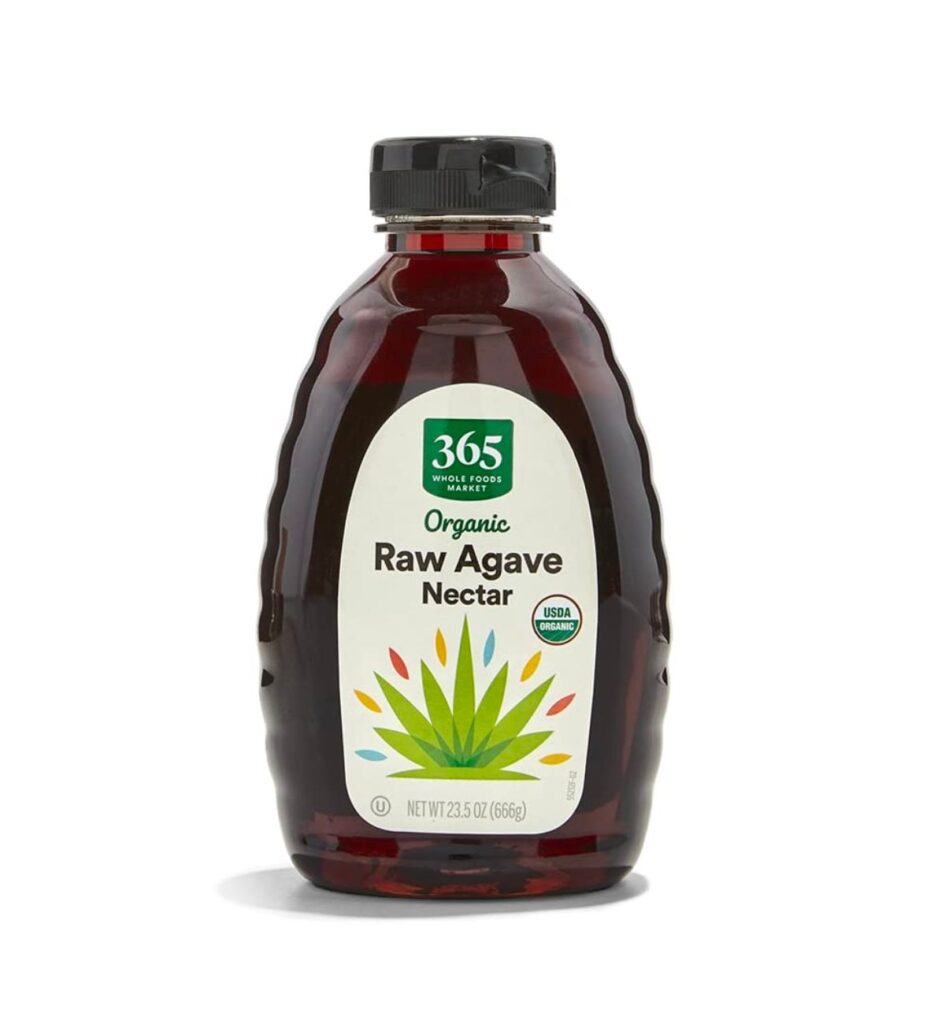
Agave syrup, derived from the blue agave plant, is a sweetener that offers a natural option to replace sugar. It is vegan-friendly and has excellent solubility in hot beverages.
Despite having a lower glycemic index, it can still lead to blood sugar spikes. Individuals with diabetes should avoid it due to its higher calorie content than table sugar.
Coconut Milk
Give your coffee an irresistibly smooth texture by introducing this delightful blend of lightness, sweetness, and nuttiness – all without the guilt of excess cholesterol and sugar typically found in cow’s milk. As Senior explains, coconut milk boasts a mere four grams of sugar compared to the 12 grams present in cow’s milk.
This makes it an excellent choice for those mindful of sugar intake and insulin levels. Furthermore, coconut milk is packed with beneficial fatty acids that have been proven to reduce harmful cholesterol while boosting good cholesterol levels.
What are Artificial coffee sweeteners?
Artificial coffee sweeteners, often referred to as sugar substitutes, are synthetic compounds created to provide the sweetness of sugar without the added calories. These alternatives are prevalent among individuals aiming to reduce sugar consumption, manage their weight, or regulate their blood sugar levels.
These sweeteners are intensely sweet, often much more precious than regular sugar, which means that only a tiny amount is required to achieve the desired level of sweetness in coffee and other beverages. Common artificial sweeteners include saccharin, aspartame, sucralose, and steviol glycosides derived from the stevia plant.
On the other hand, it is essential to acknowledge that artificial sweeteners have generated significant controversy. Despite their ability to provide a low-calorie alternative for those who crave sweetness, concerns have been raised about their potential long-term safety and impact on health.
While specific studies have hinted at a possible connection between artificial sweeteners and health problems, the general consensus remains uncertain. It continues to be the subject of ongoing research and debate.
Consequently, individuals should carefully consider their health objectives and preferences before incorporating artificial sweeteners into their coffee or diet, and seeking guidance from healthcare experts can aid in making well-informed decisions.
Best Artificial Sugar Substitute
Saccharin
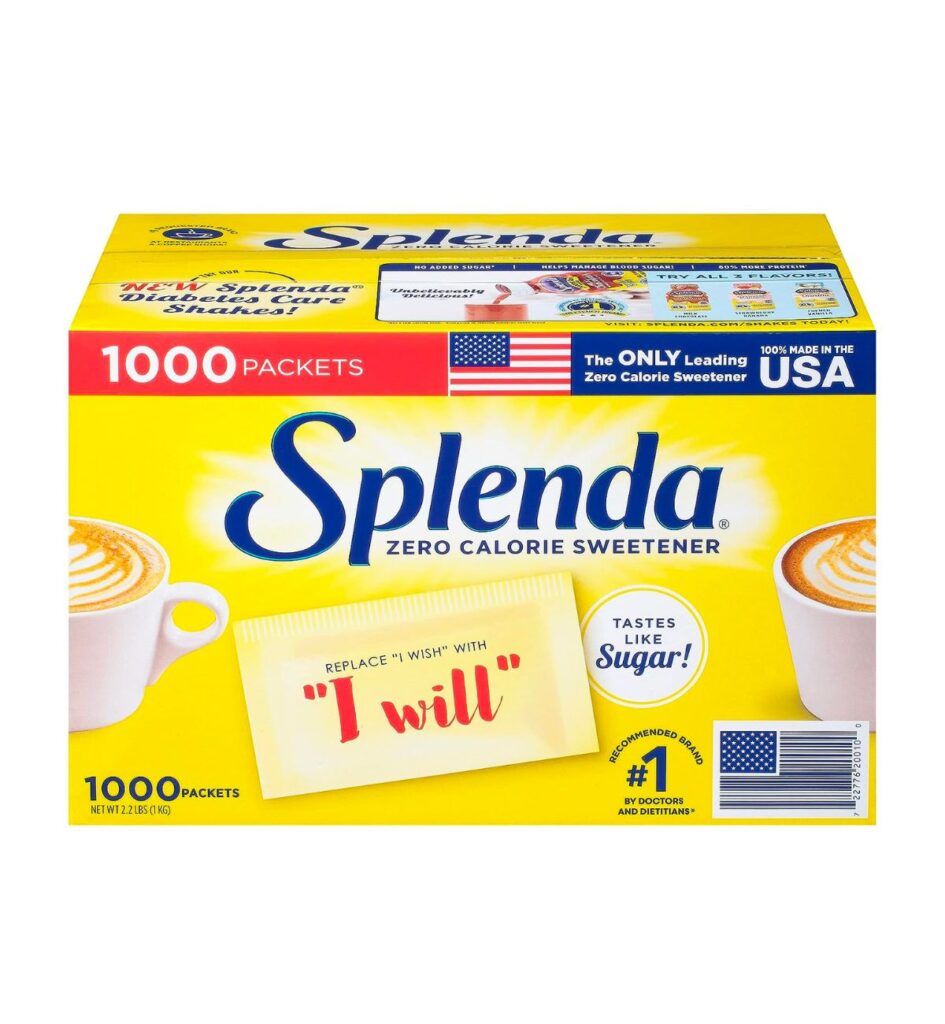
It’s a low-calorie alternative to sugar and is often used in various food and beverage products and tabletop sweeteners. Saccharin is intensely sweet, even in small amounts, so it’s used in tiny quantities to provide sweetness without adding significant calories.
It’s worth noting that saccharin has been a topic of discussion regarding its safety over the years. While it’s been approved for use by many regulatory agencies, including the FDA, concerns have been raised. However, modern research has found saccharin to be generally safe for consumption within acceptable daily intake levels.
Sucralose
Obtained through a chemical process that involves substituting certain atoms in sugar molecules with chlorine atoms, sucralose emerges as a substantially sweeter alternative to traditional sugar. Importantly, this modification renders it virtually calorie-free since the body does not metabolize it like natural sugars. Essentially, sucralose is excreted from the body, providing sweetness without the added calories.
Considered safe by regulatory agencies such as the FDA and the European Food Safety Authority, provided it is consumed within the specified daily limits, sucralose has gained popularity for its zero-calorie characteristic and heat stability. This means it can withstand high temperatures, making it suitable for cooking and baking without losing its sweetness.
Aspartame
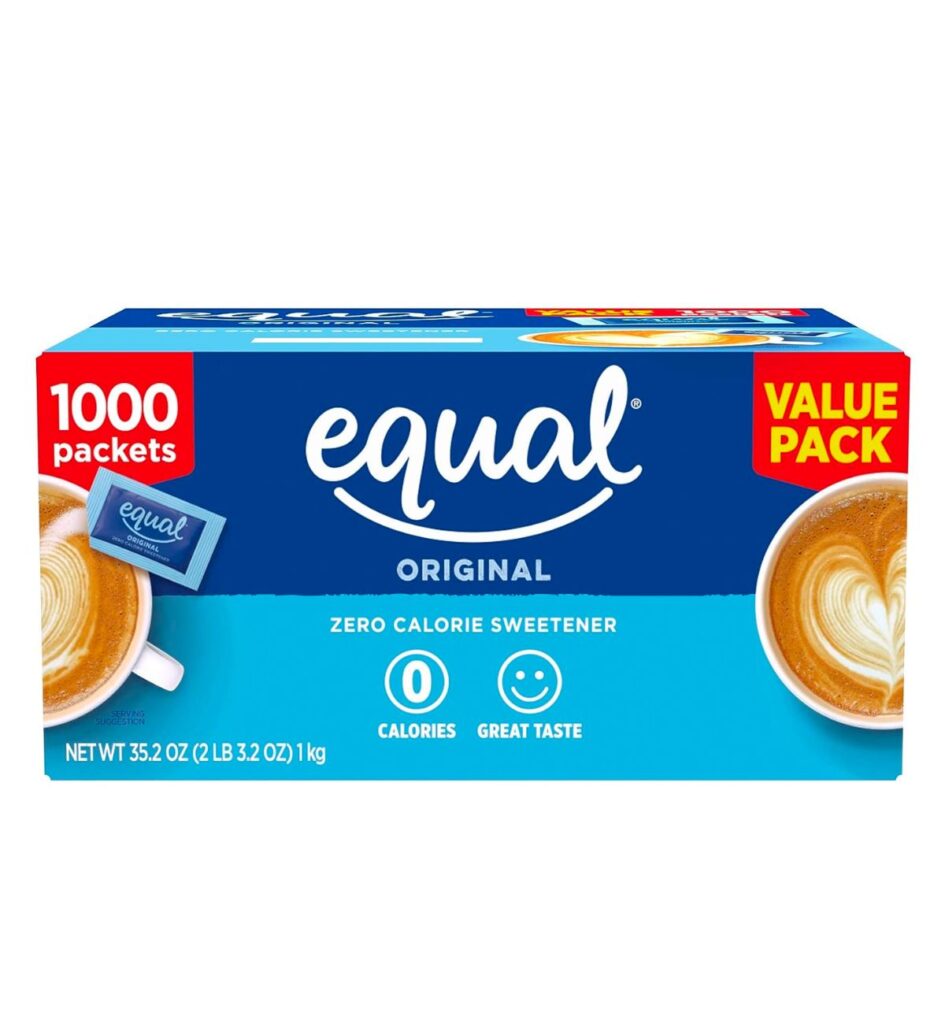
Aspartame is a commonly used artificial sweetener found in a wide range of foods and beverages. Renowned for its potent sweetness, it’s employed in small quantities to deliver a sweet taste without the caloric content of sugar. Comprising two amino acids, aspartic acid and phenylalanine, it’s metabolized into these components in the body. Its minimal caloric impact makes it popular for those seeking a low-calorie alternative.
Regulatory agencies like the FDA and the European Food Safety Authority have approved aspartame consumption within specified daily intake levels. Although heat-sensitive, it’s prevalent in cold beverages, sugar-free gum, and various low-calorie products. It’s important to note that individuals with phenylketonuria (PKU), a rare genetic disorder, should avoid aspartame due to its phenylalanine content.
Xylitol
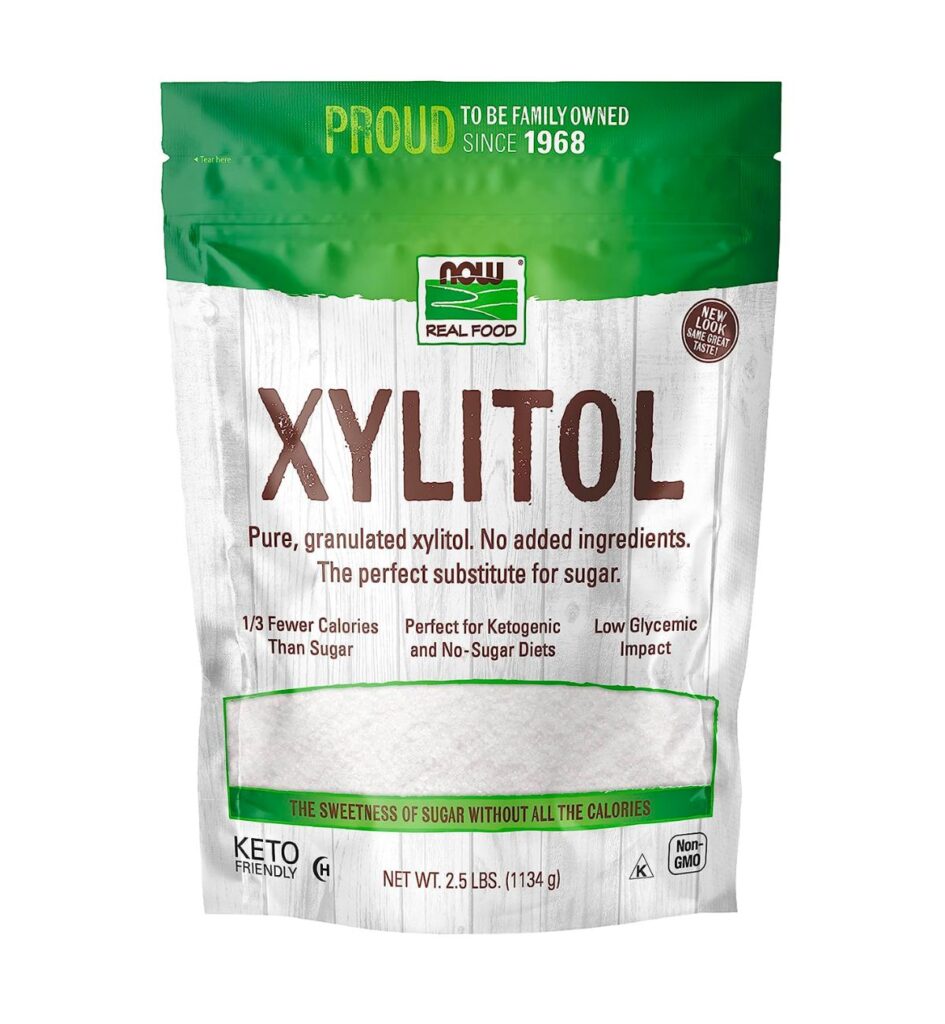
Xylitol is a natural sugar alcohol gaining popularity as a sugar substitute. Derived from birch wood or corn cobs, it tastes similar to sugar but has around 40% fewer calories. What makes xylitol appealing is its minimal impact on blood sugar levels, making it a suitable option for those with diabetes or those watching their sugar intake.
It’s commonly used in sugar-free gum, candies, and even oral hygiene products because it doesn’t contribute to tooth decay and might even help prevent it. However, it’s important to note that while xylitol is safe for most people, consuming excessive amounts could lead to digestive discomfort due to its laxative effect.
What sugar substitute tastes most like sugar in coffee?
Among sugar substitutes, erythritol is often considered to mimic the taste of sugar, especially in coffee closely. It has a taste profile similar to sucrose (table sugar). It is often described as having a clean, sweet flavor without the bitter or metallic aftertaste that some other artificial sweeteners can have. Erythritol is a sugar alcohol derived from natural sources like fruits and vegetables.
What is the best coffee sweetener for weight loss?
When looking to lose weight, choosing sweeteners that have a minimal impact on your calorie intake and blood sugar levels is essential. Some of the best options include stevia, erythritol, and monk fruit sweeteners. Stevia is derived from the stevia plant and has zero calories while not affecting blood sugar levels.
This allows you to satisfy your sweet cravings without consuming extra calories. Erythritol is a sugar alcohol that tastes similar to sugar but has significantly fewer calories and does not significantly impact blood sugar levels. Monk fruit sweetener, often combined with erythritol, provides sweetness without adding any calories and avoids causing spikes in blood sugar levels.
It is important to note that individual preferences may vary, so finding the suitable sweetener for your weight loss goals and health considerations is crucial. Always consult with a healthcare professional before making any changes.
How to sweeten cold brew coffee?
The optimal method to sweeten cold brew coffee hinges on personal taste and dietary preferences. Crafting a simple syrup by dissolving sugar (or a suitable substitute) in water ensures even sweetness distribution in your cold brew. Liquid sweeteners like agave nectar, honey, or maple syrup can be smoothly integrated, offering distinct flavor notes. Dissolvable sugar substitutes such as stevia or erythritol dissolve seamlessly, making them ideal for calorie-conscious choices.


